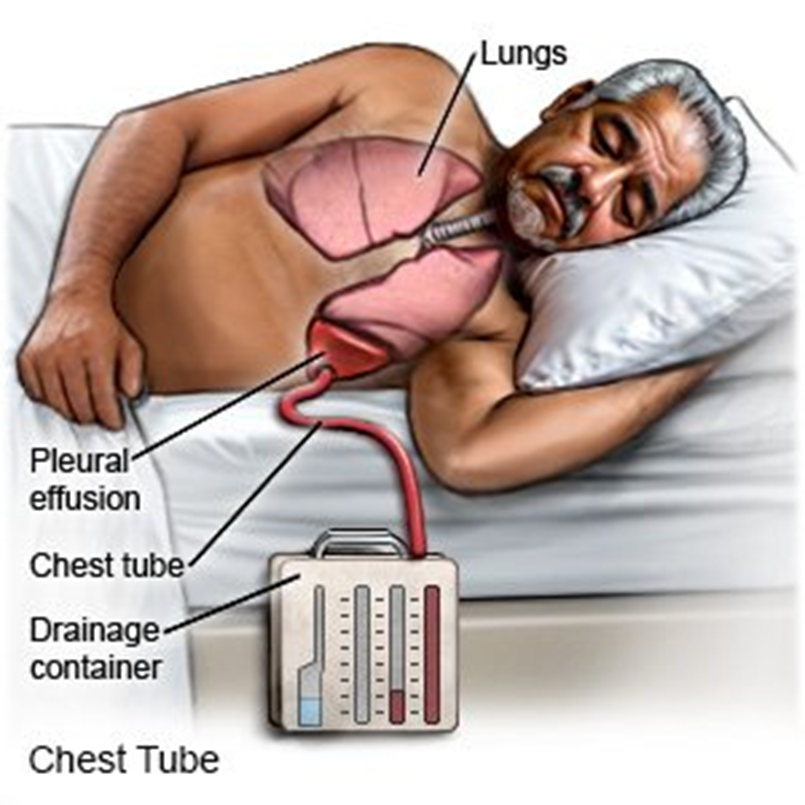The nurse is caring for a client who is diagnosed with bacterial meningitis. Which assessment finding would be an immediate concern for the nurse?
Periodic nystagmus
Severe unrelenting headaches
Photophobia during the day
Decreased level of consciousness
The Correct Answer is D
Choice A: Periodic Nystagmus
Nystagmus, which is characterized by involuntary eye movements, can be a symptom of various neurological conditions, including bacterial meningitis. However, it is not typically an immediate concern compared to other symptoms. Nystagmus indicates potential issues with the brainstem or cerebellum, but it does not directly threaten the patient’s life or indicate a rapid deterioration in condition. Therefore, while it is important to monitor, it is not the most urgent finding.
Choice B: Severe Unrelenting Headaches
Severe headaches are a common symptom of bacterial meningitis due to the inflammation of the meninges. While they are extremely painful and distressing for the patient, they are not as immediately life-threatening as a decreased level of consciousness. Headaches indicate increased intracranial pressure, which is serious, but the priority is to address symptoms that indicate a more rapid decline in neurological function.
Choice C: Photophobia During the Day
Photophobia, or sensitivity to light, is another common symptom of meningitis. It results from the irritation of the meninges and is often accompanied by headaches. While photophobia can be very uncomfortable and indicative of meningitis, it is not an immediate concern compared to a decreased level of consciousness. Photophobia does not directly indicate a life-threatening situation.
Choice D: Decreased Level of Consciousness
A decreased level of consciousness is the most immediate concern for a nurse caring for a patient with bacterial meningitis. This symptom indicates a significant and potentially rapid decline in the patient’s neurological status. It can be a sign of increased intracranial pressure, brain swelling, or other severe complications. Immediate medical intervention is required to prevent further deterioration and potential fatality. Monitoring and addressing changes in consciousness are critical in managing bacterial meningitis effectively.
Nursing Test Bank
Naxlex Comprehensive Predictor Exams
Related Questions
Correct Answer is ["B","C","G"]
Explanation
Choice A Reason:
Breath sounds diminished on auscultation indicate that there may still be fluid or air in the pleural space, suggesting that the chest tube is still needed to drain the pleural cavity. This is not an appropriate reason to discontinue a chest tube as it indicates ongoing issues that need to be resolved.
Choice B Reason:
Improved respiratory status is a key indicator that the chest tube has successfully resolved the underlying issue, such as a pneumothorax or pleural effusion. When the patient shows signs of stable and improved breathing, it suggests that the chest tube has served its purpose and can be safely removed.

Choice C Reason:
Symmetrical rise and fall of the chest during respiration indicate that both lungs are expanding and contracting normally. This symmetry is a sign that the pleural space is no longer compromised, making it an appropriate reason to remove the chest tube.
Choice D Reason:
Oxygen saturation at least 90% is a general indicator of adequate oxygenation but does not specifically address the condition of the pleural space. While important, it is not a direct reason to discontinue a chest tube without other supporting signs.
Choice E Reason:
Continuous bubbling in the water seal chamber indicates an ongoing air leak, which means that the chest tube is still necessary to evacuate air from the pleural space. This is not an appropriate reason to remove the chest tube.
Choice F Reason:
An asymmetrical chest on inspiration and expiration suggests that there is still an issue with lung expansion, possibly due to fluid or air in the pleural space. This condition requires the chest tube to remain in place until resolved.
Choice G Reason:
Bilateral breath sounds clear on auscultation indicate that both lungs are free of fluid and air, and are functioning normally. This is a strong indicator that the chest tube has achieved its purpose and can be safely removed.
Correct Answer is ["A","B","C","D","E"]
Explanation
Choice A Reason:
Monitoring the QT interval is crucial when administering amiodarone because this drug can prolong the QT interval, increasing the risk of torsades de pointes, a potentially life-threatening type of ventricular tachycardia. Regular monitoring helps in early detection and management of this adverse effect, ensuring patient safety.
Title: Choice B Reason:
Heart rate monitoring is essential as amiodarone can cause bradycardia (slow heart rate). Continuous monitoring allows the nurse to detect any significant changes in heart rate and take appropriate actions, such as adjusting the medication dosage or providing interventions to manage bradycardia.
Title: Choice C Reason:
Respiratory rate monitoring is necessary because amiodarone can cause pulmonary toxicity, including interstitial pneumonitis and acute respiratory distress syndrome (ARDS). By keeping track of the respiratory rate, the nurse can identify early signs of respiratory complications and intervene promptly
Title: Choice D Reason:
Heart rhythm monitoring is vital since amiodarone is used to treat arrhythmias. Continuous electrocardiogram (ECG) monitoring helps in assessing the effectiveness of the drug in controlling arrhythmias and detecting any new or worsening arrhythmias that may require immediate attention.
Title: Choice E Reason:
Monitoring urine output is important because amiodarone can affect renal function, especially in patients with pre-existing kidney conditions. Keeping track of urine output helps in assessing renal function and ensuring that the drug is not causing nephrotoxicity
Whether you are a student looking to ace your exams or a practicing nurse seeking to enhance your expertise , our nursing education contents will empower you with the confidence and competence to make a difference in the lives of patients and become a respected leader in the healthcare field.
Visit Naxlex, invest in your future and unlock endless possibilities with our unparalleled nursing education contents today
Report Wrong Answer on the Current Question
Do you disagree with the answer? If yes, what is your expected answer? Explain.
Kindly be descriptive with the issue you are facing.
